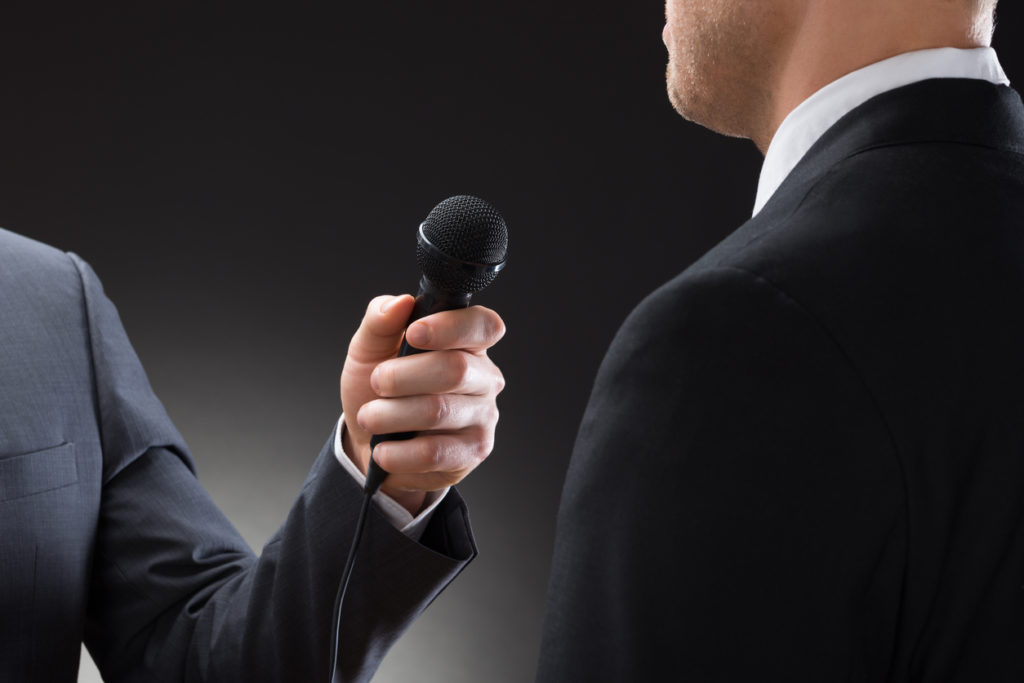Should We Just Stop Apologizing All The Time?
A public figure says something insensitive.
People get angry about it. They air their discontent on Facebook and tweet their demands for an apology.
The insensitive public figure goes into high gear, drafts a statement, and apologizes for the infraction.
The public moves on, at least until the next time a public figure says something insensitive.
Is that predictable cycle – the one that begins with a high-profile infraction and ends with an apology and public punishment – too much? At least one controversial figure thinks so. Writing in The New York Times, comedian Bill Maher (whose misogynistic comments recently landed him in hot water) wrote:
“When did we get it in our heads that we have the right to never hear anything we don’t like? In the last year, we’ve been shocked and appalled by the unbelievable insensitivity of Nike shoes, the Fighting Sioux, Hank Williams Jr., Cee Lo Green, Ashton Kutcher, Tracy Morgan, Don Imus, Kirk Cameron, Gilbert Gottfried…
Let’s have an amnesty — from the left and the right — on every made-up, fake, totally insincere, playacted hurt, insult, slight and affront.
If that doesn’t work, what about this: If you see or hear something you don’t like in the media, just go on with your life. Turn the page or flip the dial.”
Maher has a point. I’ve noticed recently that some social media “disasters” have a half-life confined to a single afternoon, after which the supposedly “outraged” flock moves on with their lives, never to mention the alleged infraction again.
But Maher takes his point too far. The public was right to blast comedian Tracy Morgan for saying he would “stab” his son “to death” if he was gay. Or to criticize Gilbert Gottfried for “joking” during the horrific Japanese tsunami that killed more than 15,000 people that “I just split up with my girlfriend, but like the Japanese say, ‘They’ll be another one floating by any minute now.’” Or, yes, to knock Maher for calling Sarah Palin a “c*nt.”

Is Maher right? Do we apologize too much?
I’m glad that we live in a time when we can use the power of social media to hold people accountable for their most horrific statements, even if the public occasionally deploys those tools with too little provocation or too much frequency.
Maher continues by writing:
“If we sand down our rough edges and drain all the color, emotion and spontaneity out of our discourse, we’ll end up with political candidates who never say anything but the safest, blandest, emptiest, most unctuous focus-grouped platitudes.”
That may be overstating it a bit. Colorful characters still break through and succeed – New Jersey Gov. Chris Christie, former VP nominee Sarah Palin, and Vice President Joe Biden immediately come to mind. This isn’t an “either/or” debate. We can have color, personality, and spontaneity without having bigotry, anti-gay rhetoric, and jokes about thousands of dead innocents.
All of that aside, I’m not sure this debate really matters for PR professionals. It’s usually outside of our power to change societal sensitivities. Our job is to help our clients present themselves in the most positive light while helping them sidestep unnecessary controversies, all within the confines of the societal sensitivities that already exist.
That means that in most cases when my clients screw up, I’ll continue to recommend that they apologize. I know that will likely upset Bill Maher. Sorry, Bill.
What do you think? Is Maher right that we’ve become a world of over-apologizers? Please leave your thoughts in the comments section below.
Have the best of the blog delivered to your inbox twice per month! Enter your name in the box below to join our mailing list.



Whether Maher is right or not, we can’t stop apologizing until public sentiment doesn’t demand it anymore. Otherwise, we run the risk of reputation trouble. I don’t agree with Maher, by the way. I am just old enough to remember a time when people kept their insensitive remarks to themselves and close friends. I would ask him, “When did we get it into our heads that we can just say whatever we think in public without any regard for the feelings of others?”Are we, indeed, just entitled to say what we think without consequences? I don’t think so.
cksyme – I agree with you. The first refuge of a bully is to accuse his target of being overly-sensitive.
Thanks for commenting,
Brad
Agree with you both.